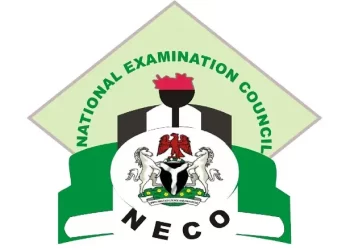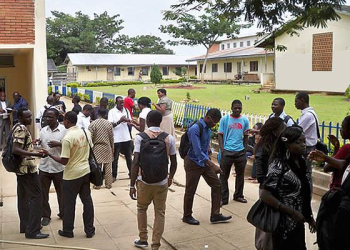The novel COVID-19 virus brought a lot with it to the whole world, Nigeria inclusive. And as many developed country raised a counter fight towards the virus after the major lockdown nation wide, some African countries, especially Nigeria are yet to combat this pandemic without shutting the country’s educational system down!
It is no longer news that as of March, 2020 the Federal Government of Nigeria had ordered a national lockdown and as such all Nigerian Schools were closed for the mean time as a means to curtail the spread of the contagious virus. In that regards, the lockdown and curfew lasted for about three consecutive months in the country.
Later on the FG of Nigeria allowed Markets,Mosques,Churches and other social gatherings to resume their activities if and only if they would adhere strictly to the general precautions to avoid the spread of the virus. In most states, enforcement were used to make sure citizens abide by this law.
Regardless of this order, the Federal Government had also insisted that most Nigerian Schools especially the Universities are yet not safe for resumption of their school activities.
It was argued that the Nigerian Schools houses more population than the general outdoor social gatherings and hence, high risk of spreading the novel virus in campuses.
Nevertheless, some State Government which include Lagos State, Delta State, Anambra state, Kogi, Ondo, Ogun, Ekiti, Bayelsa, Rivers Benue, Kwara, Oyo and Osun had went ahead to declare the reopening of their primary school sector. They started off with just the Junior secondary class 3 and the Senior Secondary class 3 for the preparation and the sitting of their examinations. While allowing the rest of the students to resume later on.
Despite the resumption, the government had inspected and issued orders for schools to strictly adapt to the COVID-19 precautions in order to control and prevent the spread of the virus.
The major setback in the educational system due to the COVID-19 pandemic is remarkable made in the Nigerian tertiary institutions especially those under ASUU. Amidst these precautions most private and state Universities has taken up the mantle to resume school activities while at the same time ASUU remains adamant with resuming.
Nevertheless, irrespective of the pandemic, academic sessions need not to be lost entirely. Definitely, Nigerian Schools could be reopened without fear of the contagious COVID-19 if and only if they abide by the guidelines mapped out by the Federal Ministery of Education, NCDC, WHO and the UNICEF.
“The long-term impact of extending the school shutdown risks ever greater harm to children, their future and their communities,” said UNICEF Regional Director for Eastern & Southern Africa, Mohamed M. Malick Fall. “When we balance the harm being done to children locked out of schools, and if we follow the evidence, it leads children back into the classroom.”
For this reason UNICEF and WHO are strongly of the opinion that schools should be resumed amidst pandemic while there’s evert need to heed to all the stipulated guidelines.
Below are the summary for the safety guidelines mapped out for the safe reopening of Nigerian Schools.
Face masks should be included in the school children uniform. Everyone should be mandated to owing at least one mask. The school should equally make provision for face mask in case of emergency.
There is every need for social distancing even in school. Clustering of students in classes should be avoided. Chairs and desks should be well spaced at all cost. Students should be made to avoid extreme close contact with each other and over crowding activities in schools should be prohibited.
Also, there should be a provision for washing hands in different batches within the school compound. School children should be reminded to wash their hands after sweeping, playing or handling crude objects. There should equally be avoidance of unnecessary touching of each other and this as well will create a distance between each school child.
Also, in that regards there should be a provision for sanitization department in every school. It is believed that most schools lack this facility. Schools without such should endeavour to make out one while school that had sanitization department should restructure the facility. This department would be involved in overseeing the over all school hygiene. Their work includes disinfecting school toilets often, cleaning sensitive surfaces within the school, decontaminating water, waste management and environmental cleaning. They should always make sure there’s clean water and detergent which might be soap or a hand sanitizer available for students and teachers at all time.
Among all these guidelines, it is also extremely important to always make sure that sick students and teachers are not welcomed in the school environment. There should be a general rule for sick students and teachers to stay at home until they are fully recovered. There should be no visitation of such during this period as well.
Having listed these guidelines, it is important to note that the most important thing is to reopen schools safely and in accordance with the Federal Ministery of Education stipulated guidelines. Instead of creating a political propaganda out of this pandemic situation, public schools should be funded in the quest to provide the necessary facilities and management to ensure that students and pupils continue to enjoy safe learning process.






